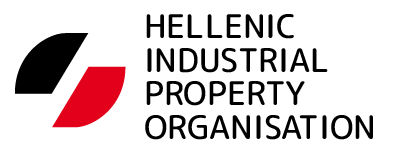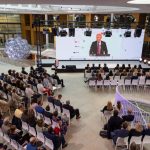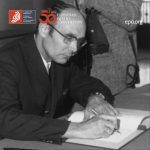Europe today celebrates a milestone in supporting innovation and economic prosperity with the 50th anniversary of the European Patent Convention (EPC).
A festive ceremony was held with distinguished guests, including Ursula von der Leyen, President of the European Commission, and King Willem-Alexander of the Netherlands.
The celebrations also mark the launch of the European Patent and Technology Observatory.
In Munich on October 5, 2023, Europe celebrated the 50th anniversary of the European Patent Convention, a key historical step in supporting innovation and European integration.
The convention, signed on October 5, 1973, established the European Patent Organisation and its executive arm, the European Patent Office (EPO), and laid the foundation for the European patent system, which has fostered innovation and economic growth across Europe over the past five decades.
In a statement, EPO President António Campinos said, “The European Patent Convention turns 50 today. This legal legacy represents a strong expression of the combined aspirations of a continent that desires peace and prosperity and is united by a common vision for innovation in Europe. In recent years, we have sought to intensify our efforts in areas such as the patent granting process, quality, the technologies we use, and international cooperation. And so often, we have stood on the shoulders of giants—both past and present—who have helped us get to where we are today, to become the organisation we are now.”
To honor this historic event, the EPO held a public hybrid event, paying tribute to the achievements of the EPC and all those involved.
The celebrations, broadcast globally, were attended by prominent figures such as King Willem-Alexander of the Netherlands, Ursula von der Leyen, President of the European Commission, Rumen Radev, President of Bulgaria, and Olaf Scholz, Chancellor of Germany.
Representing the Hellenic Industrial Property Organisation (OBI), General Director Panagiotis Kanellopoulos, Deputy General Director Katerina Margellou, Head of International Relations Myrto Lamprou-Maurer, and Head of Communications Rania Zacharopoulou attended.
“The impressive number of 2.2 million European patents shows, first, the great diligence with which the employees of the European Patent Office perform their work. And secondly, it represents the unwavering innovative power and competitiveness of Europe,” said German Chancellor Olaf Scholz, adding that the European Patent Office has always considered itself the driving force of innovation and development—and its success confirms this.
Ursula von der Leyen, President of the European Commission, said:
“It is fitting that the 50th anniversary of the European Patent Convention coincides with the 30th anniversary of the European Single Market. Patents and competitiveness are two sides of the same coin. Therefore, it is remarkable that the European Commission and the EPO collaborate so closely. And there is no better example of our excellent cooperation than the Unitary Patent System. Simulations show that this system could generate nearly 2 billion euros in additional direct foreign investments in the European Union. Companies in Europe can finally begin to benefit from a single technology market.”
Message from the General Director of OBI, Panagiotis Kanellopoulos: https://youtu.be/IMxOCMKuNQ4
To mark this historical anniversary, the EPO will launch a Patent and Technology Observatory on October 6. The Observatory will provide a unique forum to bring together public and private stakeholders to address emerging trends and technologies in Intellectual Property and tackle challenges such as climate change and the transition to cleaner energy systems. The launch of the Observatory is part of the EPO’s commitment to support innovation for the next 50 years, and its first event will take place on October 17, with the participation of start-ups from across Europe and beyond.
Historical Facts – OBI and the Munich Convention
The first European patent granted by the EPO was in January 1980 for a device that determines whether coins inserted into parking meters and ticket machines are authentic. Since then, the EPO has granted over 2 million European patents for technological innovations, many of which have changed our world—from the well-known QR code and MP3 format to life-saving vaccines and cutting-edge car stability systems.
Today, the EPO handles over 190,000 patent applications annually from around the world and has become one of the leading patent offices globally. From just 16 signatory states in 1973, the European Patent Organisation now has 39 member states.
Greece ratified the Munich Convention with Law 1607/1986 (Government Gazette 85 A’). Greece’s accession on October 1, 1986, was a turning point for the reform of the national patent system and the promotion of innovation. With the five-year EPO Support Program, the Hellenic Industrial Property Organisation was established, the sole national authority for the protection of industrial property titles in Greece.
Thanks to additional validation and extension agreements, the EPO’s central patent granting process now allows companies, researchers, and inventors to obtain high-quality patents valid in up to 44 countries, covering a market of around 700 million people. Furthermore, the EPO has entered into agreements with third countries to achieve greater harmonisation and higher quality in patent systems worldwide.
Currently, about 6,300 dedicated and specialized staff work at the EPO, located in Munich and with offices in The Hague, Berlin, Vienna, and Brussels. Together, they represent the diversity of European expertise, with 34 different nationalities.
Along with stakeholders, the EPO has also developed the world’s largest patent information databases, which are made publicly available. The Office’s free search tool, Espacenet, provides access to more than 140 million patent documents, offering an unparalleled source of information on inventions and technological developments worldwide, opening the door for researchers, scientists, and inventors to further innovation and future ideas.
Further boost for inventors came with the launch of the Unitary Patent System on June 1, 2023. Based on the EPC itself, the Unitary Patent underscores the commitment to simplifying and streamlining the patent granting process for innovators and businesses. It offers a single patent, with a single renewal fee, in a single currency, within a single legal system, before a single Unified Patent Court for the 17 participating countries—set to expand to potentially 27 nations and any other countries joining the EU family. Businesses are quickly adopting this new system, with approximately 700 applications for the Unitary Patent received each week since its launch.





